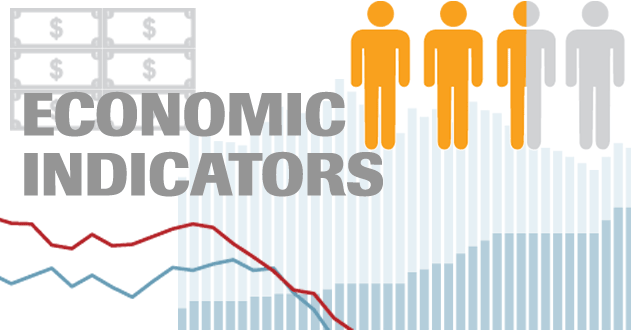The Memphis metro economy continues to languish in its recovery from the Great Recession. The U.S. Conference of Mayors predicts that it will be the first quarter of 2018 before it returns to the pre-Recession peak.
Jobs growth and the Gross Domestic Product seriously lag, suggesting that it would be a logical time for a radical rethinking of our economic development theories and strategies.
Return to Pre-Recession Peak Employment (MSA):
2010Q4 – Austin
2012Q1 – Nashville
2012Q1 – Oklahoma City
2012Q3 – Salt Lake City
2012Q4 – Baltimore
2013Q4 – Charlotte
2013Q4 – Richmond
2014Q2 – Atlanta
2014Q2 – Knoxville
2014Q2 – Kansas City
2014Q3 – Miami
2014Q4 – Cincinnati
2014Q4 – Jackson, MS
2014Q4 – Jackson TN
2014Q4 – Tulsa
2015Q2 – Little Rock
2015Q2 – Jacksonville
2015Q2 – Portland, OR
2015Q2 – Tampa
2015Q4 – Chicago
2016Q2 – Las Vegas
2016Q4 – Chattanooga
2018Q1 – Memphis
2017Q1 – Milwaukee
2018Q1 – Albuquerque
2018Q1 – Detroit
2018Q1 – St. Louis
2018Q2 – Cleveland
Jobs Growth for U.S. Metro Areas (2016-2015)
#1 – Coral Gables-Fort Myers (3.6%)
#6 – Tampa/St. Pete (3.1%)
#6 – Austin (3.1%)
#14 – Atlanta (3.0%)
#14 – Las Vegas (3.0%)
#21 – Portland (2.8%)
#24 – Nashville (2.7%)
#27 – Charlotte (2.7%)
#33 – Dallas (2.6%)
#39 – Raleigh (2.5%)
#39 – Salt Lake City (2.5%)
#45 – Miami (2.4%)
#45 – Denver (2.4%)
#60 – Richmond (2.3%)
#60 – Jonesboro, AR (2.3%)
#73 – Clarksville, TN (2.2%)
#78 – Indianapolis (2.1%)
#78 – Louisville(2.1%)
#88 – Baltimore (1.9%)
#88 – Jackson, TN (1.9%)
#121 – Little Rock (1.7%)
#143 – Cincinnati (1.5%)
#151 – Knoxville (1.4%)
#169 – Minneapolis (1.3%)
#169 – Oklahoma City (1.3%)
#169 – Kansas City (1.3%)
#169 – Memphis (1.3%)
#169 – Chattanooga (1.3%)
#186 – Jackson, MS (1.2%)
#189 – Birmingham (1.2%)
#215 – St. Louis (1.0%)
#215 – New Orleans (1.0%)
#232 – Milwaukee (0.9%)
#251 – Detroit (0.8%)
#253 – Pittsburgh (0.7%
#274 – Tulsa (0.6%)
Growth of Gross Metropolitan Product of U.S. Metro Areas
#3 – Austin (4.4%)
#7 – Raleigh (4.2%)
#18 – Charlotte (3.7%)
#28 – Miami (3.6%)
#33 – Dallas (3.5%)
#33 – Atlanta (3.5%)
#43 – Little Rock (3.4%)
#47 – Salt Lake City (3.3%)
#47 – Nashville (3.3%)
#47 – Jacksonville (3.3%)
#79 – Indianapolis (3.0%)
#97 – Louisville (2.9%)
#105 – Richmond (2.8%)
#119 – Cincinnati (2.7%)
#119 – Baltimore (2.7%)
#139 – Kansas City (2.5%)
#139 – Jackson TN (2.5%)
#176 – Chattanooga (2.3%)
#176 – Memphis (2.3%)
#176 – Knoxville (2.3%)
#203 – Birmingham (2.1%)
#203 – Cleveland (2.1%)
#203 – St. Louis (2.1%)
#235 – Detroit (1.9%)
#235 – Pittsburgh (1.9%)
#300 – Oklahoma City (1.4%)
#306 – New Orleans (1.3%)
#338 – Tulsa (0.9%)






To say that the Memphis metro economy continues to languish is being far too kind. This city and region are so much worse off than almost every other part of the country. When combined with our population losses, poverty, poor schools, high infant mortality, anemic jobs market and other key barometers, Memphis is like a third world city.
While not perfectly correlated, Memphis is not alone in the region. Other cities nearby also suffer from slow recovery from the Great Recession. Nashville seems to be the exception to the rule. Memphis has relied on logistics for many decades for its growth. Maybe, we need to look elsewhere for the future, though we do have a ‘warehouse’ type labor force.
We started off somewhat poor before the recession. It could be that ‘being poor’ makes it hard to recover from an economic shock. Most of the fast recovery cities were already in pretty good shape before the recession.
Seeing other cities in the region near the bottom of the list makes me feel better. It means that Memphis is probably not unique. We didn’t do something spectacularly wrong.
David: If you were in charge, what would you do to start a process to develop a new economic development philosophy and strategies? What would be your objectives?
Very true about Nashville. As SCM has stated before, hardly any city can match the growth and development that’s been underway in greater Nashville especially during the last 10 years.
We visited friends there recently and the number of huge projects, skyscrapers, hotels, apartments and restaurants is truly amazing. Everyone expected things might slow down a bit, but every week there seems to be more announcements like the two 40 story twin towers along the riverfront.
Now, let’s put the information in proper perspective. The State of Tennessee is not a wealthy state. We have 7 Fortune 500 Companies, three of which are in Memphis and two in Nashville. A fortune 500 company has to generate almost 5 billion dollars per year, to be in that category.
FedEx, the financial cornerstone of Memphis and the State of TN generated 47,4 billion in revenue in 2015. The entire State generated estimate 32 billion in tax revenue during that period. Memphis also has two other fortune 500 companies in Auto Zone and International Paper. The three combined companies have almost three times the revenue of the state.
Economic development is a planned endeavor where billions of dollars are put on the table. Obviously, Nashville was put ahead of Memphis in development for a period of time but, those smart enough to see the big picture will watch Memphis raise to be the shining star of the State by the mighty Mississippi.
Interesting, accurate points. How do you connect the fact that Tennessee is not a wealthy state to these measurements since they are for the entire MSA and are national rankings? Thanks for answering. Your point is worth exploring.
This is very difficult question. I was dismayed to see that most of cities near us suffer from similar problems. But let’s start with the obvious. The same-old, same-old development policies have not been a great success in the area. Low taxes or reducing taxes does not bring development. Pretending to improve education and pretending that those who get an education won’t leave for Atlanta does not bring development. Bringing in jobs that are without benefits, or part-rime, or have no real upward mobility will not bring economic development.
So why not try turning everything upside down. Increase taxes dramatically. Require new companies to pay extra taxes to pay for the infrastructure they will require. Use new tax monies for huge new projects in transportation and education in the metro. Remember that Memphis metro is what counts, not the just the city or any one of it numerous suburbs.
Try huge student loans with forgiveness if you take a job in the Metro area. My ideas may be slightly crazy. But in fact doing the same old things that the Government and the Chamber have been doing for decades is probably the real definition of craziness.
Just a start. I’ll think more about it.
It’s the demographics that work against the city and MSA. Memphis is an extremely poor city in terms of income, education and work force and that spreads across the mid south region. We will continue to rank at the bottom of most polls and surveys. Real positive change is just not going to happen here anytime soon. I believe that things will get even worse in Memphis.
David: Amen. You ask the right question: why not turn everything upside down? Thanks for continuing to think about it. SCM
“Real positive change is just not going to happen here anytime soon…I believe that things will get worse.” I believe we will eventually come to realize that many of our problems are psychological and self-imposed. To say our problem is “demographics” is to continue to reinforce the notion that if you are from a specific ethnicity or SES, the past will always define the future. There is no true evidence to suggest that alternate realities are not possible. One of the first steps will be a change in worldview wherein people, especially in neglected parts of the city, feel that their effort whether in work or school can impact a positive meaningful change in their circumstances. Much of the recent improvement in the city’s self image reflects a kind of therapeutic work at play on the level of the city itself. This should be continued and not underestimated.
One more point inspired by Pruitt. Our local giant corporations are really not committed to the local higher education infrastructure. A consortium of the big companies really needs to put a $ billion or so per year into the local colleges. I think this sort of commitment helped turn Pittsburgh around when steel left 30-40 years ago. Right now, I am guessing that the educational commitment is in the low millions. You cannot do anything in today’s world unless you are talking hundreds of millions.
Very inspiring — time for me to be quiet.
So true. Please don’t be quiet. Great thinking at work.
Thanks, Chatul, for your always thoughtful contributions to our conversation.
One correction, Anonymous: Memphis’ demographics did not “spread” across the entire Mid-South. The region has always had the same issues. Once you leave Shelby County, incomes, educational attainment, etc., go down, and that’s unlike most regions of our size.
I’d say that income and education levels are high in DeSoto Co. and rising fast. The quality of life there is certainly better than in Shelby Co for sure!
Maybe we define quality of life differently Southhaven is a testament to poor planning while Hernando is doing a lot right. Friends who are in public finance predict that DeSoto County is the government around here at risk for bankruptcy in the future (we hope they’re wrong). But we digress.
The per capita income for DeSoto and Shelby are essentially the same. As for percentage of population with bachelor’s degree or higher, Shelby is at 29.8% and DeSoto is at 21.7%.
While no cities are identical, I have always wondered what the differences are between say, Detroit*, and Memphis. In terms of many stats, both cities have much in common–low education levels, low income levels, poverty, etc.
Yet along with all those stats, in Memphis there seem to be many people and institutions which, for lack of a better term, recognize some underlying potential for greatness based on the history and culture and again, for lack of a better term, love for this city. Why is that?
Although I’m a native Memphian, I spent 25 yrs in New Orleans when it was in economic doldrums as bad as Memphis, yet people there, at least those in the inner city, had a great deal of pride and sense of place, somewhat similar to what folks in Memphis do.
*I just threw Detroit out there, could be a number of other cities.
Well, shucks. Here I was, feeling good about Memphis after a delightful Saturday downtown. Breakfast at the Arcade, watching the half marathon, lots of visitors and locals alike having a great time, loads of energy in South Main and South Front areas.
Now I’m bummed after reading this article and some of the comments. I’ve learned we have no future here because we can’t keep up with our state capitol. (Sigh)
When we talk about turning things upside down or changing course; who is supposed to lead the charge on that endeavor?
Our friends at the Chamber? They chose to eschew city funds so they could bankroll pro-corporate candidates in local elections. Our elected officials? They were funded by the Chamber. The people who run the top companies are doing quite well. Most Memphis based publicly traded companies are trading at 52 week highs.
Our corporations and their owners do not fund or give generously to the community – in any meaningful way – unless it involves sports (Fred’s idea of local giving). And our citizens allow the gentry to run the show. This is the history of Memphis since its founding.